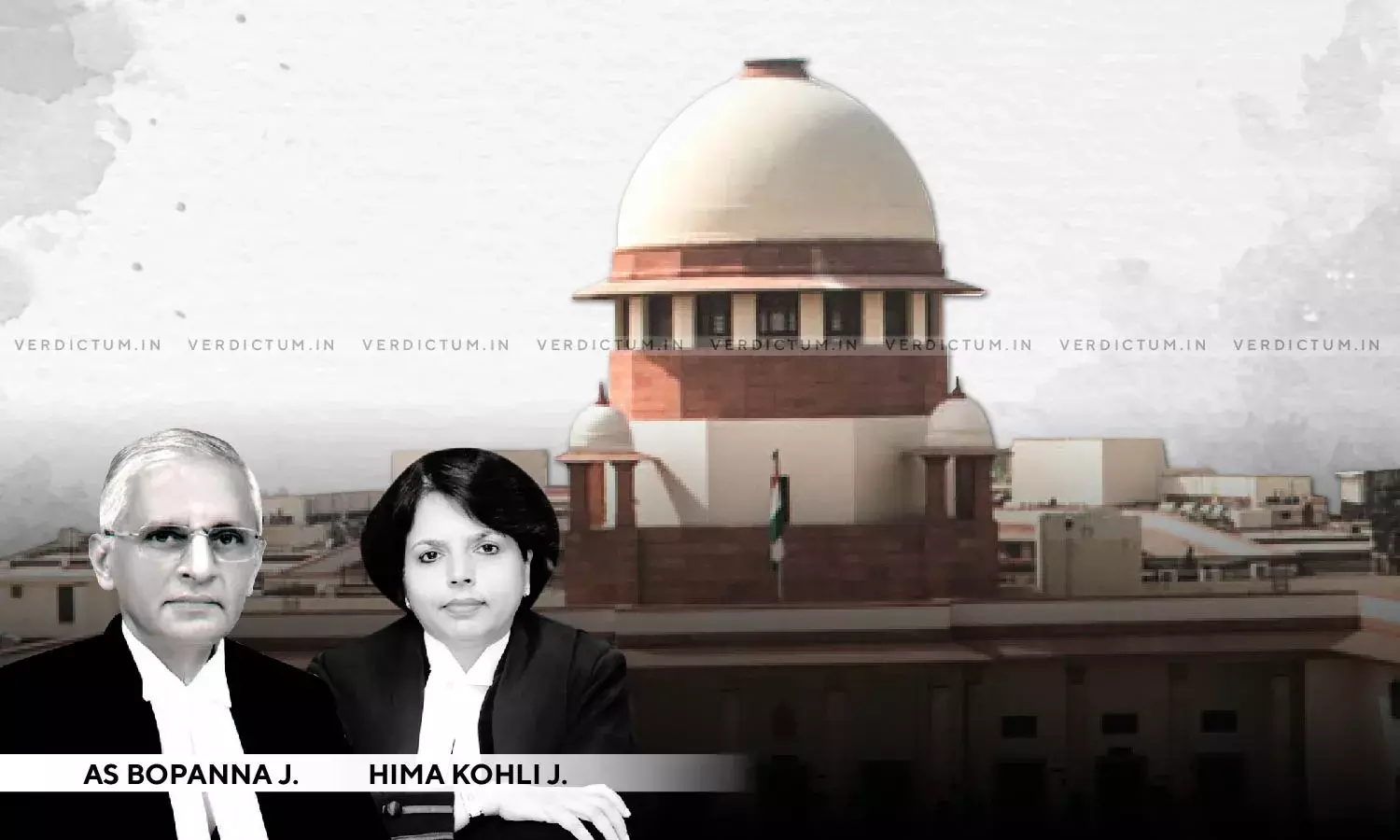Clubbing Of Proceedings & Passing A Common Judgment Is Not Justified In Cases Which Warrant Different Scope Of Consideration- SC

The Supreme Court, while remanding a case back to the Madras High Court wherein the proceedings initiated in two civil suits were clubbed and a common judgment was passed, observed that the clubbing was not justified as different consideration was required in the nature of the proceedings.
The Bench of Justice A.S. Bopanna and Justice Hima Kohli observed that “Though, in a normal circumstance, to avoid contradicting decrees, the Courts would be justified in considering the matters together, we note that in instant proceedings the nature of consideration in the Second Appeal as against a consideration to be made in the First Appeal were entirely different in as much as the re-appreciation of the evidence and interference with the finding of the fact would arise only in the First Appeal and not in the Second Appeal.”
The Bench further directed the High Court to make the consideration after de-linking the proceedings and said that “...we note that the judgment dated 30.07.2012, which had clubbed the proceedings has in turn led to the conclusion wherein, a different consideration is required in the nature of the proceedings. We are therefore, unable to sustain the judgment... While so considering, we find it appropriate to observe that the appeal in A.S. No. 26 of 2004 be considered initially and based on the decision that would be taken on that, the same be applied to the proceedings in S.A. No. 994 of 1999."
Senior Advocate V. Chitambaresh appeared for the appellant and Advocate V. Parabhakar appeared for the respondent.
In this case, the appeal was preferred against the judgment of the Madras High Court which was a common judgment whereunder the Second Appeal in S.A. No.994/1999 and the Regular First Appeal in A.S. No.26 of 2004 which warranted different scope of consideration, had been considered and disposed of by the common judgment.
Factual Background
A civil suit was filed for declaration and injunction contending that the plaintiffs were entitled to a declaration that they were the absolute owners of the property and consequently, for injunction. The suit was dismissed as the contention of oral partition was not accepted. The Regular First Appeal against the said judgment was also dismissed.
Thereafter a Regular Second Appeal was preferred, where a consideration was required to be made as against the concurrent finding of the Court that whether any substantial question of law was raised.
Another civil suit for partition was instituted by the appellant wherein partition and separate possession of the properties was sought. The said properties also included the properties which were the subject matter in the first suit.
The suit for partition was allowed and regular first appeal was pending. Since the parties were the same in the two proceedings, the appeals were clubbed and considered by High Court and a common Judgment was passed.
The Apex Court said that the substantive consideration relating to partition in second suit would have answered the contention as to whether there was an oral partition which had arisen in the first suit.
“If, on independent consideration, the prior partition was not proved, the concurrent finding against oral partition in the earlier suit would have sustained itself. The same would have answered the suit for partition, which would have been a consideration ultimately to decide the suit for declaration and injunction which was the subject matter in Second Appeal No. 994 of 1999, only if there was reversal of the judgment in O.S. No. 31/2004.” observed the Apex Court.
Therefore, the Apex observed that the nature of consideration in the Second Appeal as against a consideration to be made in the First Appeal were entirely different and further requested the High Court to refer the matters to mediation at the outset and thereafter, consider the matters on their merits only if the mediation did not fructify.
Accordingly, the appeal was disposed of.
Cause Title- Seethamal & Anr. V. Narayanasamy & Ors.
Click here to read/download the Judgment

